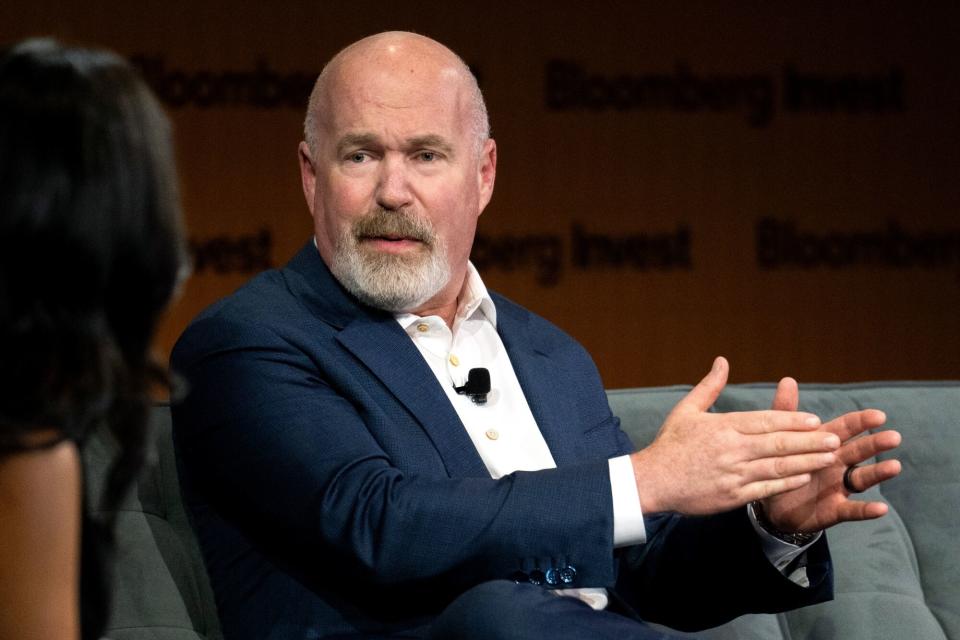Cliff Asness Says the Machines Are Making More Decisions at AQR

(Bloomberg) -- AQR Capital Management is letting machines play an even bigger role across the $109 billion quant powerhouse, says co-founder Cliff Asness.
Most Read from Bloomberg
YouTuber Dr Disrespect Was Allegedly Kicked Off Twitch for Messaging Minor
VW Latches Onto Rivian in $5 Billion EV Pact to Regain Momentum
Nvidia Rout Takes Breather as Traders Scour Charts for Support
Julian Assange Leaves Court ‘Free Man,’ Ending 14-Year Drama
While the firm’s better performance over the past few years is partly due to market cycles, it has also made some changes, Asness said at the Bloomberg Invest conference in New York on Tuesday.
“Not to get into an AI kind of theme, but we let the machine decide more,” he said. “I’m reasonably convinced it’s just at least a little bit better than us.”
While its competitors have long experimented with applying machine learning, a branch of AI focused on parsing data, Asness has voiced skepticism in the past that these new investment techniques would have a material impact on the firm. Its strategies tend to be rooted in traditional economic theory and academic research.
AQR has also diversified into trend-following strategies that track fundamental signals, as well as esoteric markets such as Malaysian palm oil and milk, he said.
The Greenwich, Connecticut-based asset manager’s multi-strategy offering gained 13.5% this year through April, after a 16% return in 2023. The era of elevated interest rates has proven fertile ground for hedge funds, as winners and losers in the stock market diverge and the larger macro swings buoy futures-trading strategies such as AQR’s.
A doctorate student under Eugene Fama, who won a Nobel Prize for his research on the efficient-markets hypothesis, Asness also said markets have become “somewhat less efficient” over his career. He cited meme stocks and the wide valuation gap in the wake of the pandemic between the cheapest and priciest stocks. That gulf has narrowed recently, which to him means the market isn’t in a bubble, and the firm has “downgraded” the opportunity on value stocks, he said.
“We do think there’s more room to run,” he said of value investing. “But it’s not the opportunity of a lifetime, which it was three years ago.”
Most Read from Bloomberg Businessweek
How Jeff Yass Became One of the Most Influential Billionaires in the 2024 Election
Why BYD’s Wang Chuanfu Could Be China’s Version of Henry Ford
Independence Without Accountability: The Fed’s Great Inflation Fail
©2024 Bloomberg L.P.

 Yahoo Finance
Yahoo Finance 